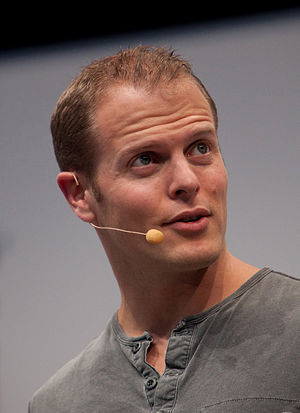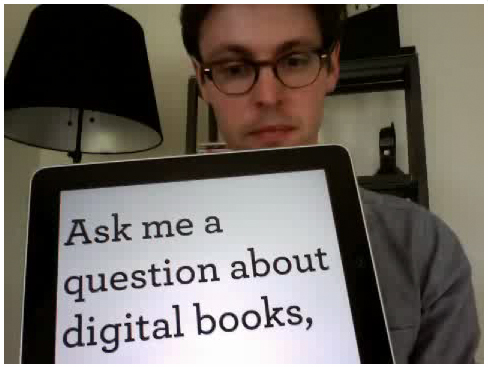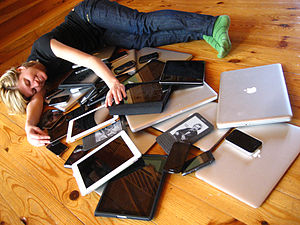Amazon Snaps Up The 4-Hour Chef
While word warriors continue to battle over the death/rebirth of publishing, I’m inclined to agree with Paul Carr that the “the golden era of books isn’t over. The golden era of books is NOW!“
In terms of both unit sales (up 4.1% from 2008) and revenue (up 5.6% from 2008), American publishers experienced a bumper year last year.
And the good news doesn’t stop there: thanks to the Kindle and the iPad, people who three years ago would never have strayed within 500 feet of a bookshop (and still wouldn’t) can now buy the latest James Patterson as easily as downloading Angry Birds. People who weren’t reading for pleasure, now are. This is good.
Even more interestingly, Amazon has extracted from amber the DNA of pamphlets and short stories (and maybe even serial novels) and given them a chance at new life in the form of Kindle Singles…
So, yes, given that the publishing industry is thriving, new formats are emerging, dead formats are coming back from the grave and top flight authors are making tens of millions of dollars a year, it’s something of a stretch to argue that the golden era of books is over. Moreover, it’s considerably less of a stretch to argue that the golden era of books is now. (TechCrunch)
And what better proof than Alison Flood’s announcement in The Guardian on Wednesday: “Amazon strikes first ‘major’ publishing deal“?
Amazon.com has made the first “major” acquisition for its New York-based publishing imprint, snapping up rights in bestselling self-help author Timothy Ferriss‘s new book The 4-Hour Chef.
Ferriss is author of the New York Times bestsellers The 4-Hour Body and The 4-Hour Workweek… The 4-Hour Chef will, said Amazon, build upon the “4-hour” philosophy “by transforming the way we cook and eat”. It will publish the book in print, digital and audio formats next April.
Ferriss, whose previous books were published by Random House imprint Crown, said that his decision to move to Amazon Publishing “wasn’t just a question of which publisher to work with. It was a question of what future of publishing I want to embrace.
“My readers are migrating irreversibly into digital, and it made perfect sense to work with Amazon to try and redefine what is possible,” said the author in a statement. “This is a chance to really show what the future of books looks like, and to deliver a beautiful experience to my readers, who always come first…” (Guardian)
Amazon, who’s publishing imprint is headed by Larry Kirshbaum (formerly the CEO of Time Warner Book Group), stands to dominate the future of print, digital and audio publishing, and veteran book creator/peddler Tim Ferriss has now driven this message home once and for all!
Ferriss has opined on the state of the publishing industry before, often defending his choice to work within the traditional publishing industry, but he’s a savvy thinker, investor and self promoter, so I wasn’t surprised to discover that he courted Amazon rather than vice versa.
The opportunity to partner with a technology company that is embracing publishing is very different than partnering with a publisher embracing technology. (TNW Media)
Could the message be more clear? I’m looking forward to reading The 4-Hour Chef!
Related articles
- Amazon strikes first ‘major’ publishing deal (guardian.co.uk)
- Tim Ferriss’s deal with Amazon is both an outlier and a harbinger (idealog.com)
- Amazon boosts its publishing credentials by signing self-help guru Tim Ferriss (thenextweb.com)
- Amazon Publishing Signs Up Timothy Ferriss’s Next Book(online.wsj.com)
- Amazon Set to Publish Pop Author – New York Times(nytimes.com)
- Publishing News: Amazon launched the HTML5 Kindle Cloud Reader (radar.oreilly.com)
- Amazon’s publishing arm signs up Timothy Ferriss (guardian.co.uk)















